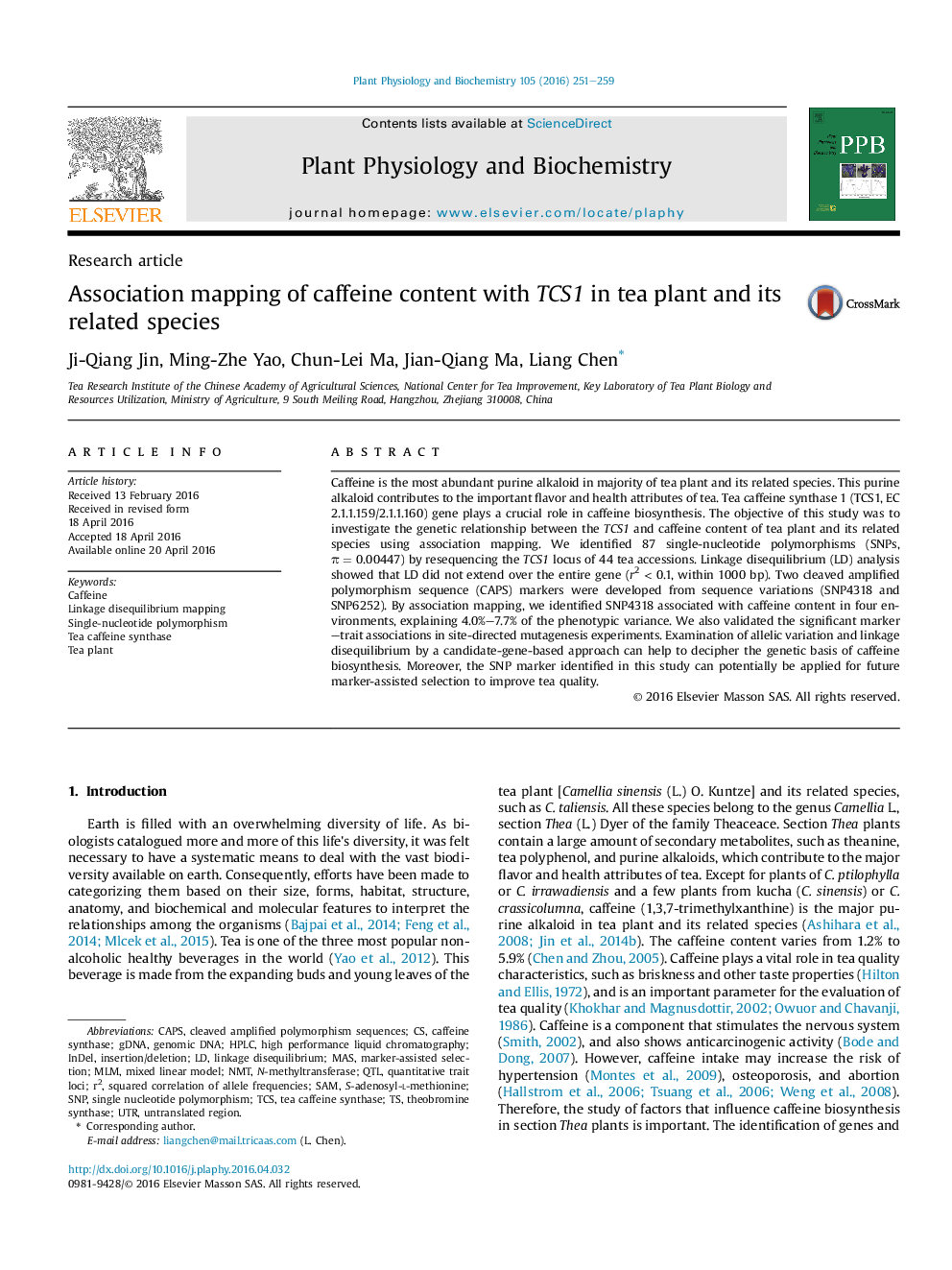| Article ID | Journal | Published Year | Pages | File Type |
|---|---|---|---|---|
| 2015540 | Plant Physiology and Biochemistry | 2016 | 9 Pages |
•Nucleotide diversity and linkage disequilibrium of TCS1 was revealed.•SNP4318 in TCS1 associated with caffeine content was identified.•The function of SNP4318 was validated by site-directed mutagenesis experiment.
Caffeine is the most abundant purine alkaloid in majority of tea plant and its related species. This purine alkaloid contributes to the important flavor and health attributes of tea. Tea caffeine synthase 1 (TCS1, EC 2.1.1.159/2.1.1.160) gene plays a crucial role in caffeine biosynthesis. The objective of this study was to investigate the genetic relationship between the TCS1 and caffeine content of tea plant and its related species using association mapping. We identified 87 single-nucleotide polymorphisms (SNPs, π = 0.00447) by resequencing the TCS1 locus of 44 tea accessions. Linkage disequilibrium (LD) analysis showed that LD did not extend over the entire gene (r2 < 0.1, within 1000 bp). Two cleaved amplified polymorphism sequence (CAPS) markers were developed from sequence variations (SNP4318 and SNP6252). By association mapping, we identified SNP4318 associated with caffeine content in four environments, explaining 4.0%–7.7% of the phenotypic variance. We also validated the significant marker–trait associations in site-directed mutagenesis experiments. Examination of allelic variation and linkage disequilibrium by a candidate-gene-based approach can help to decipher the genetic basis of caffeine biosynthesis. Moreover, the SNP marker identified in this study can potentially be applied for future marker-assisted selection to improve tea quality.
Graphical abstractFigure optionsDownload full-size imageDownload as PowerPoint slide
